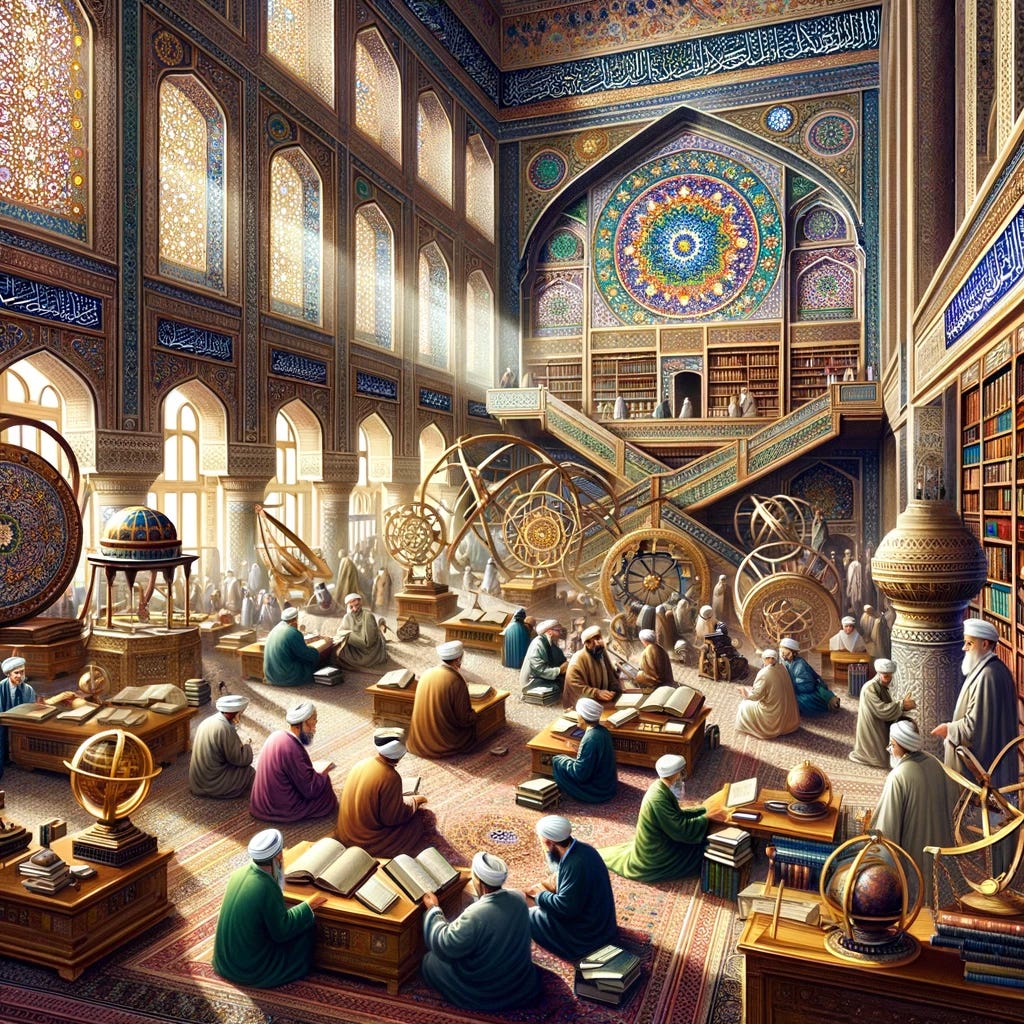Islam and Secularism by Syed Naquib al-Attas Book Review
Arguably one of the greatest books written in the 20th-21st centuries by a Muslim intellectual and metaphysician on the reality of the modern world.
I. Introduction
Syed Muhammad Naquib al-Attas is a distinguished Malaysian scholar whose work significantly influences contemporary Islamic philosophy and thought. His extensive examination of Islamic spirituality, philosophy, and metaphysics has positioned him as a pivotal figure in the discourse on Islam’s relationship with the modern world, especially secularism and the nature of knowledge. His book “Islam and Secularism,” published more than 50 years ago, critically addresses the challenges posed by secular ideologies to Islamic traditions and values, advocating for an integration of Islamic principles in addressing modernity’s perplexities.
In this phenomenal book, al-Attas confronts the reductionist tendencies of modern science and the secular outlook that pervades contemporary thought, arguing that they strip the world of its inherent spiritual essence. He posits that the worldview of secularism not only leads to a fragmented understanding of reality but also contributes to the existential disorientation experienced by individuals and societies alike. By advocating for a reinvigorated Islamic epistemology that honors the synthesis of empirical and spiritual knowledge, al-Attas seeks to restore a sense of purpose and wholeness to the pursuit of knowledge in Muslim civilization.
Al-Attas's critique extends beyond mere academic discourse, proposing practical steps for re-aligning contemporary Islamic thought with its rich intellectual and spiritual heritage. His vision includes the revitalization of Islamic educational systems and the reintegration of Islamic metaphysics into the study of the natural world. He organizes his book into four main chapters, which cohesively address the issue of secularism and the necessary antidote by which Muslim societies can regain their former sense of self.
II. Summary of Book’s Key Themes and Arguments
Al-Attas begins his book with an exploration of contemporary Western Christian civilization and clarifies concepts like “Secular”, “Secularization”, and “secularism”, and contrasts these with Islamic views on religion, ethics, and morality. He introduces the notion of the “dewesternization of knowledge” and the “Islamization of contemporary knowledge”, advocating for a reformation in Muslim thought and education through concepts like din, adl, hikmah, ma’na, and ta’dib.
The author contrasts the dynamic nature of Western civilization, characterized by its relentless pursuit of “becoming”, with the Islamic emphasis on “being” and permanence. This distinction is crucial to understanding the differences in worldview between the Islamic tradition, which sees reality as a reflection of a higher, immutable truth, and the Western paradigm, which often upholds the transient and mutable in the never-ending pursuit of progression. Through this lens, al-Attas critiques the Western emphasis on progress and innovation for its own sake, arguing for a more balanced approach that also recognizes the value of stability, continuity, and adherence to enduring principles.
Central to al-Attas's argument is the role of Islamic metaphysics and Sufism in offering a comprehensive understanding of reality that transcends the empirical and rationalist limitations of modern science. He posits that Islamic metaphysics, with its integration of reason and revelation, provides a framework for understanding the world that acknowledges both its material and spiritual dimensions. Sufism, as a mystical tradition within Islam, is highlighted for its contribution to a deeper, intuitive grasp of existence, emphasizing the unity and interconnectedness of all beings. Through this discourse, al-Attas advocates for an Islamic epistemology that harmonizes scientific inquiry with spiritual wisdom, proposing a path towards knowledge that is both intellectually rigorous and spiritually enriching.
III. Analysis of Ideas
Syed Naquib al-Attas articulates the essence of Islamic metaphysics with a nuanced approach that marries rationality with the profundity of spiritual wisdom, deeply rooted in the traditions of Tasawwuf. He underlines the critical role that Sufi masters play in deepening our understanding of reality, navigating between the Essentialist and Existentialist schools of thought within the Islamic tradition. The former zooms in on the intrinsic nature or quiddity of entities, while the latter elevates the concept of existence (wujud) as the foundational truth of all being. Al-Attas champions a comprehensive outlook that transcends simple logical deduction to embrace an experiential, intuitive understanding of the universe.
Al-Attas suggests that true knowledge is something far more significant than mere empirical observation and deductive reasoning. He argues that existence, in its deepest form, is the essence of everything. By presenting this idea, he guides us to a space where the observable and the metaphysical converge, shedding light on a reality where each particle and principle is infused with a facet of divine truth (al-Haqq). This blend not only deepens our understanding of the universe and our role in it, but also emphasizes the unity and diversity that define the divine fabric of creation.
In this respect, al-Attas fashions a perspective in which the metaphysical and the material are not separate but constitute a whole cloth of being and becoming. This vision asserts the connectedness of all existence, displaying one superlative comprehension of the universe that undertakes its multiplicity and is grounded in the singularity of divine essence. Therefore, al-Attas's discourse does not merely redefine our engagement with the physical and the spiritual; it provides an integrated transformative paradigm reconciling the intuition of the heart and the inquiry of the mind toward a more integrated, holistic understanding of our reality.
IV. Comparative Perspectives
Into the contemporary landscape of thought on secularism, knowledge, and modernity, Syed Muhammad Naquib al-Attas contributed to creating an engaged Islamic tradition with the global narratives, which would come to be dominated by secular paradigms. His work provides an original Islamic perspective on most issues relative to the Islamic reformists and the Western secularist thinkers, and enhances our view of his place in the wider debate.
Al-Attas' rebuke of secularism and the reductionist approach of modern science is targeted at much the same Islamic thinkers as Seyyed Hossein Nasr, who also posits the necessity of integration of spiritual wisdom with empirical knowledge. Al-Attas, however, gives distinct his approach with further emphasis on the concept of "adab" and the "Islamization of knowledge" with the aim of a revival of Islamic education that deeply incorporates Sufi metaphysical insights. The above is contrasted with such reformists as Muhammad Abduh, who tried to reconcile Islamic thought with modernity through rationalism and a return to the Qur'an and Hadith, sidelining the metaphysical and mystical dimensions emphasized by al-Attas.
On the contrary, the views of al-Attas on knowledge and reality show fascinating resemblances with those of modern Western philosophers of his generation, such as Martin Heidegger, in their critique of the modern scientific worldview for its forgetfulness of Being and the reduction of the world to mere objects for manipulation. If Heidegger sought the retrieval of the question of Being from within the Western philosophical tradition, al-Attas calls attention to the Islamic intellectual heritage and provides a solution on the basis of the Islamic conception of knowledge that necessarily contains the spiritual and ethical dimensions of human existence.
V. Conclusion
The work of al-Attas stands like a lighthouse for the mariner guiding his way through tempestuous waters of identity, knowledge, and faith in a sea of rapid transition and overwhelming secular dominance. It is a constant reminder that in the course of understanding reality at its core, the struggle is not only intellectual but spiritual. Indeed, what good is the mind if it is not nourished by the soul. "Islam and Secularism," thus, is more than a critique of contemporary challenges but rather a holistic vision for a future in which knowledge is pursued with adab, in which science and spirituality go hand in hand, and in which the wisdom of the past lights the way ahead.
In the end of this expedition, we are confronted with the following vision: a vision of the world in which the secular/sacred dichotomy is transcended and whereby, the rich tapestry of the Islamic intellectual and spiritual tradition is able to offer vital insights for the contemporary existential questions of humankind. Al-Attas's work tells us to reimagine anew our relationship with knowledge, with reality, and with the Divine, by re-imaging what it can be like to live, to learn, and to be integrated, deeply in the Islamic tradition yet profoundly relevant to the contemporary world.
Link to purchase the book: Islam and Secularism







